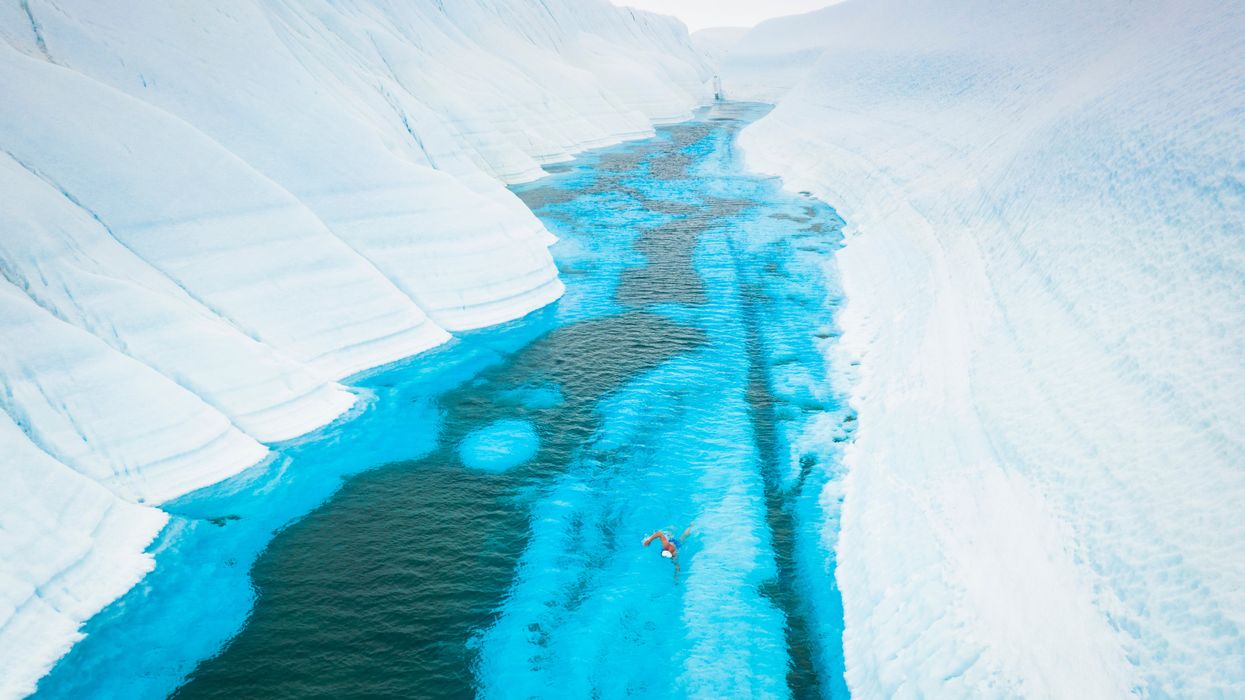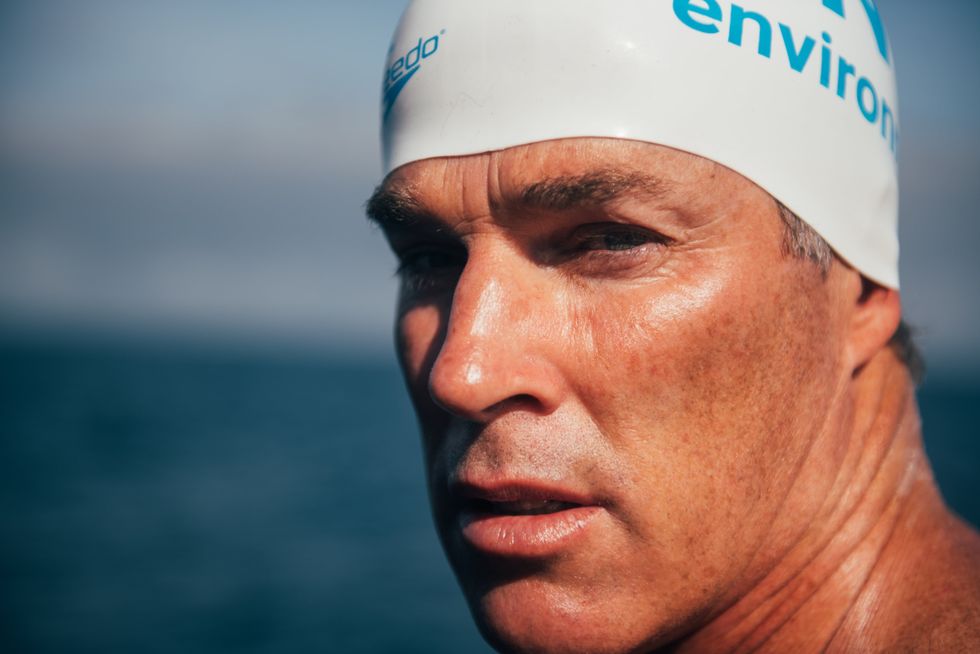Endurance swimmer Lewis Pugh plans to undertake what he describes as the coldest swim on Earth to highlight the speed at which the planet is melting.
Mr Pugh, who has swum in regions including the Arctic Antarctic, the Himalayas and up the English Channel to push for action to protect the environment, is heading to Greenland for what he says is his most challenging swim yet.
He will swim across the 10-kilometre (six-mile) mouth of the Ilulissat Icefjord, in front of the world’s fastest-moving glacier, in near-freezing waters with a wind chill that can plummet temperatures to negative numbers.
The multi-day swim will require the UN patron of the oceans to travel much further than the direct distance of 10km in the water as he will have navigate around icebergs and floating fragments of ice, known as brash ice.
It is expected to take two weeks at the end of August and will be the world’s first multi-day swim in the polar regions, as well as the coldest swim on Earth, Mr Pugh says.
Mr Pugh will highlight the rapid melting in regions such as the Arctic as a result of climate change, before heading to crucial international Cop26 talks in Glasgow in November to urge governments to take urgent action on the crisis.
He is also calling for 30% of the world’s oceans to be protected as part of efforts to curb climate change – with healthy seas more able to store carbon and help protect the land against the impacts of rising temperatures.
The swim comes after the UN issued a stark report on how humanity is driving global warming, causing increasingly dangerous extreme weather, melting ice caps and glaciers and rising sea levels that threaten coastal cities such as London and New York.
My last swim before heading to the Arctic 🥶🐻❄️ I leave next week. https://t.co/pchuEVLe5C— Lewis Pugh (@Lewis Pugh) 1628348318
Mr Pugh said: “What happens in the Arctic will determine the future of our planet and everything that lives on it.
“The polar regions are feeling the effects of the climate crisis more dramatically than anywhere else on Earth.
“If temperatures continue to increase, the polar ice caps will melt and sea levels will rise.
“Unless we take urgent action to decrease global temperatures by seriously lowering our global carbon dioxide emissions, low-lying islands and coastal cities will, quite literally, drown.”
He added: “The devastation of the natural world will affect every single person, every future generation and every creature, great and small, on this planet.”
The Ilulissat Glacier, which is a Unesco World Heritage Site, moves at an average of 30 metres per day and produces 10% of Greenland’s icebergs, some of which are over 1km (0.6 miles) tall and including – according to legend – the one that sank the Titanic.
Mr Pugh’s previous efforts in “Speedo diplomacy”, undertaking extreme swims in just trunks, goggles and cap as part of campaigns to drive action to help the environment, have helped protect vast tracts of ocean.
He is currently training in Iceland, before moving his training to Greenland ahead of his swim, which is expected to start on August 25.
He said: “This swim will be the most challenging of my career. The cold-water adaptation and training alone is gruelling and extremely intense on the body.
“But there is a reason I’m doing this. We are an ice-dependent species. Ice keeps our planet cool enough for us to live.
“The polar regions and high-altitude glaciers are melting, and our collective survival is on the line.
“No ice, no life.”















